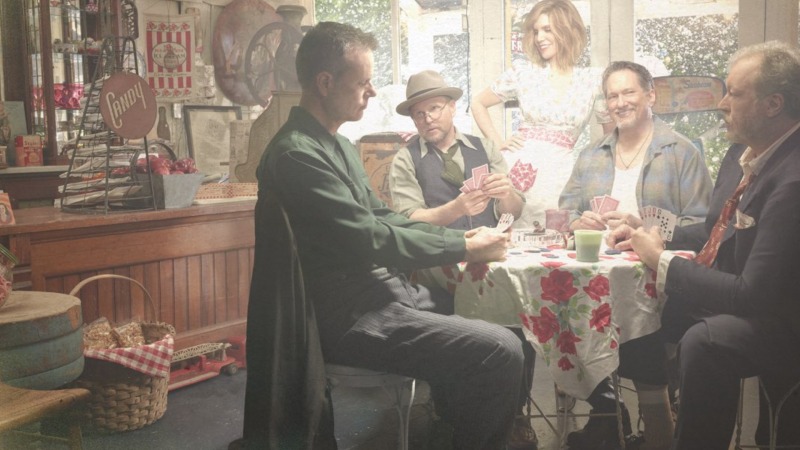Alison Krauss & Union Station Re-emerge With Arcadia
Russell Moore steps in for Dan Tyminski on the bluegrass band’s first new album in 14 years. On these songs, Krauss sounds ageless and the musicians around her are clearly enjoying themselves.

It’s bound to be a little disappointing to fans of Alison Krauss & Union Station who waited 14 years for a new album only to find that Dan Tyminski, a mainstay of the band on vocals, guitar, and mandolin since 1992, isn’t on it. Fortunately, Russell Moore was available instead.
With Tyminski focused on his solo career, Moore slipped right in like he and Krauss have spent a lifetime swapping songs. He and Tyminski have a similar aesthetic: supple voices with a flat twang and a vibrance you just can’t fake. Yet it’s not a one-for-one swap. Moore, the most awarded male vocalist in the history of the International Bluegrass Music Association, brings his own sensibility to Union Station, and to Arcadia, the group’s first release since Paper Airplane in 2011. It’s perhaps most apparent in the material he sings, which doesn’t always come from the same well of traditional bluegrass and old-time music—though in Union Station’s hands, it sounds like it does. Whether Moore was involved in choosing songs for the album isn’t clear, but Union Station hadn’t previously drawn from material by the likes of JD McPherson or Cordelia’s Dad, each of whom is represented here.
For all Moore’s skill as a singer, Krauss properly remains the primary focus on Arcadia—it is her name out front, after all. She sounds ageless, and though she’s more than capable of singing with power, Krauss favors vocals that are delicate and haunting, as if she’s singing from behind a veil of grief. She gets right into it on opener “Looks Like the End of the Road,” her voice rising and falling on swells of dobro, courtesy of Jerry Douglas, along with piano and mandolin. The song, written by Jeremy Lister, seems to exist in its own time, as emotionally resonant now as it would have been 100 years ago.
-

-

-

-

-

-

-

-

-

-

-

-

-

-

-

-

-

-

-

-

-

-

-

-

-

-

-

-

-

-

-

-

-

-

-

-

-

-

-

-








































